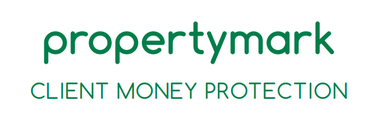
Did you know that when you rent out all or part of your home a Capital Gains Tax (CGT) charge may apply when you sell the property? Currently, HMRC exclude the last 18 months of your ownership – even if the property is let for this time – when assessing any CGT liability. However, in a draft of the Finance Bill released earlier this year, HMRC have confirmed that this 18-month period will be reduced to 9 months from April 2020. Disabled property owners, or those in a care home, will continue to be exempt for 36 months.
The Finance Bill also outlines a change to the letting relief rules…
Letting relief is an extra deduction you can make from any CGT payable when letting your home. Under the rules, you can claim the lowest of the following three amounts:
- The same amount that you can claim as private residence relief.
- £40,000.
- The same amount as the chargeable gain you made from letting your home.
From April 2020, you will only be able to claim this letting relief if you are in shared occupancy with the tenant.
Property owners that are considering the sale of their home – which is or has been let for any period – may be advised to complete their sale before April 2020. In this way they will benefit from the 18 month exemption and the more flexible lettings relief.

In July the Government confirmed its plans to change the way that Capital Gains Tax (CGT) is calculated for properties that are part or fully let. Currently HMRC excludes the last 18 months of your ownership, even if the property is let in this time, when calculating Capital Gains Tax due. From April 2020 this period will reduce to nine months (the exemption excludes disabled property owners or those in care which remains at the present 36-month period).
In addition, currently you can claim letting relief as an extra deduction from any CGT payable as a result of letting your home. You can claim the lowest of the following three amounts:
- The same amount that you can claim as private residence relief.
- £40,000.
- The same amount as the chargeable gain you made from letting your home.
From April 2020, you will only be able to claim this letting relief if you are in shared occupancy with the tenant.
If you let part or all of your property and are considering selling it, you may be better doing so before April 2020 to minimise any CGT payable by benefiting from the 18 month exemption and the more flexible lettings relief.
To find out more about this article please contact us.

If you are a landlord or have a portfolio of properties, you can claim ‘wholly incurred’ expenses against your property income. Expenses must follow the standard HMRC guidance and the expenses must be exclusively for the purpose of renting out the property.
HMRC provide a number of examples of allowable expenses including:
If you buy a new vacuum cleaner for your own home, and also use it to clean your rental property between tenants, you can’t claim the cost of the vacuum cleaner as an expense against your rental income.
However, you could claim the cost of any cleaning products you bought specifically for cleaning the rental property.
Where costs are incurred partly for your rental business and partly for some other purpose you may be able to claim a proportion of that cost if that part can be separately identified as being incurred wholly and exclusively for the purposes of the property rental business. More information on this is in the next section.
Allowable expenses include:
- Mortgage interest – a proportion of this cost is now limited to basic rate Income Tax relief,
- General maintenance and repairs to the property, but not improvements (such as replacing a laminate kitchen worktop with a granite worktop)
- Water rates, council tax, gas and electricity
- Insurance, such as landlords’ policies for buildings, contents and public liability
- Costs of services, including the wages of gardeners and cleaners
- Letting agent fees and management fees
- Legal fees for lets of a year or less, or for renewing a lease for less than 50 years
- Accountant’s fees
- Rents (if you’re sub-letting), ground rents and service charges
- Direct costs such as phone calls, stationery and advertising for new tenants
- Vehicle running costs (only the proportion used for your rental business) including mileage rate deductions for business motoring costs
Expenses you can’t claim a deduction for include:
- the full amount of your mortgage payment – only the interest element of your mortgage payment can be offset against your income
- private telephone calls – you can only claim for the cost of calls relating to your property rental business
- clothing – for example if you bought a suit to wear to a meeting relating to your property rental business, you can’t claim for the cost as wearing the suit is partly for your rental business and partly to keep you warm – no identifiable part is for your property rental business
- personal expenses – you can’t claim for any expense that was not incurred solely for your property rental business

Tenant Fees Ban. How will landlords and tenants be affected?
The new Tenant Fees Act comes into force on the 1st June 2019. So what is it? And how will it affect landlords and tenants?
What is the new Tenant Fees Act?
In a bid to reduce the charges that tenants pay from the start of the renting process, the new Tenant Fees Act caps the amount that renters can be charged for their deposits and bans letting fees altogether. Specifically it requires that:
- Tenancy Deposits must not exceed the equivalent of five weeks' rent (unless the annual rent exceeds £50,000 in which case deposits are capped at six weeks’ rent).
- The amount that can be charged for a change to a tenancy will be capped at £50 unless the landlord demonstrates that greater costs were incurred.
- Holding Deposits will be capped at no more than one week’s rent.
Alongside rent and deposits, agents and landlords will only be permitted to charge tenants fees associated with:
- A change or early termination of a tenancy when requested by the tenant.
- Utilities, communication services and Council Tax.
- Payments arising from a default by the tenant where they have had to replace keys or a respective security device, or a charge for late rent payment (not exceeding 3% above the bank of England base rate).
How will it affect landlords?
Landlords (and Agents) will only be able to charge for 'reasonably incurred costs' and will have to provide evidence of the costs before they can be charged to a tenant.
Any landlord (or Agent) ignoring the ban on letting fees risk facing a fine of £5000.
How will it affect tenants?
The changes are good new for tenants. Currently tenants face a range of charges such as admin fees, tenancy renewal fees, referencing fees and credit check fees to name but a few.
From the 1st June 2019, landlords will be responsible for meeting the costs associated with these fees. The only charges that can be made will be:
- A refundable holding deposit, capped at one week's rent
- The weekly or monthly agreed rent
- Utilities and council tax
- A refundable deposit, capped at six weeks rent.
- Changes to the tenancy agreement, capped at £50, unless the landlord can proves costs are higher than this.
- Early termination of the tenancy, requested by the tenant
- Defaults by the tenant. Provided such fees are 'reasonable'.
All other fees will be banned.

Historically, the Christmas and New Year holidays see record visits to sites such as Rightmove and Zoopla, with over 1.6m properties viewed online as people escape the Christmas turkey to think about their next move.
Understandably, many people are reluctant to sell or let their property until after the New Year. But, if you are thinking of moving, selling or letting a property in January, can you afford not to put your property in front of potential buyers at this important time of year?
Even if your property is listed with an agent, you don't have to conduct viewings, if you don't want to. The likelihood is that potential buyers or tenants would prefer to wait until the New Year anyway. Instead, get your property listed, so you're ready to take action as soon as the holiday season is over.
Here's what we recommend:
- Book your market appraisal now. We can discuss with you a strategy to get your property in front of buyers or tenants by the 21st December, so that your listing is available for all those buyers researching over Christmas.
- Get your home ready for selling. Use your preparations for Christmas as a time to de-clutter and to fix those DIY jobs.
- Get your paperwork in order. Get your payslips, bank statements, tax returns and employment contracts together, so you are ready to apply for your next mortgage, demonstrate that you have the funds in place for your next property or be able to quickly complete the tenant application process.
- Get a surveyor lined up to complete a survey on your property. Unless you are buying a new property, which will come with all or some of a 10 year NHBC guarantee, chances are that you will need some form of survey completing on your next property. Use the run-up to Christmas to decide who you are going to use and what type of survey you are going to undertake.
If you are thinking of selling or letting before or just after Christmas, planning ahead will ensure you get a head start in the New Year, will ensure your property is in front of potential buyers over the Christmas break and still enables you to enjoy family time without disruption. Voila!
Get in touch today, if you'd like to arrange a free market appraisal of your property.
Elevating the Elmbridge property market
Visit us in Molesey
East Molesey
Surrey
KT8 9ER
VISIT US IN ESHER
Claygate
Esher
Surrey
KT10 0PD


